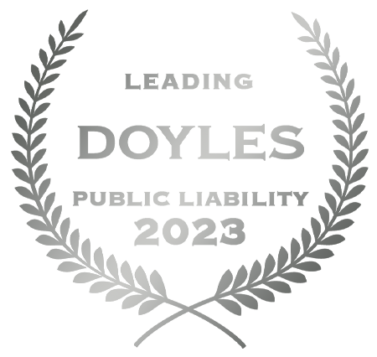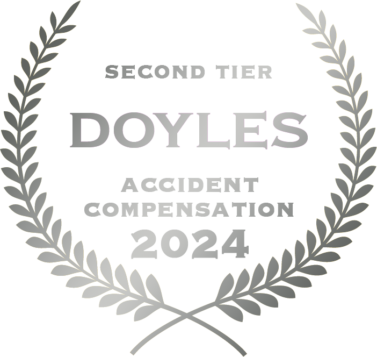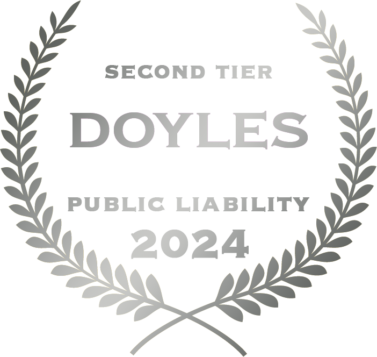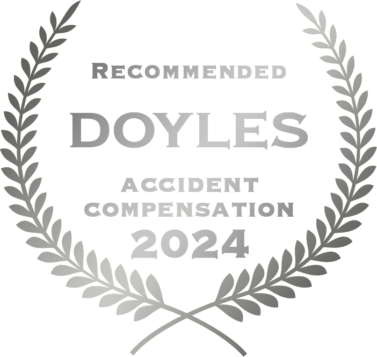
Successful Psychological Injury Claims – Your Guide.
If you’ve developed a psychological injury caused by bullying, stress, traumatic events, or an accident in the workplace, it can be completely debilitating and make it very difficult to continue working. However, if your condition has been primarily caused by your work, you may be entitled to significant compensation, including lump sum payouts.
If you make a successful psychological injury claim, these lump sums can be substantial. But many people risk missing out by not getting their psychological condition properly assessed.
If you have a psychological injury caused by your work, this article will help you understand what you can claim and whether you’re entitled to a lump sum payout, including expert tips from our lawyers on how to make a successful claim.

Workers compensation payouts for psychological injury – what you need to know.
We’ve helped thousands of Australians to make successful psychological injury claims, and these are the most common situations we come across:
Bullying and harassment in the workplace.
Workplace bullying is a serious problem in Australia and a risk factor for anxiety, depression, and suicide. If it leads to psychological injury or illness, compensation payouts can be substantial, especially if management has failed to take steps to address it.
Stress-related psychological illnesses.
To make a compensation claim for stress, you need to have been diagnosed with a qualifying stress-related condition, which is referred to as a psychological injury.
Exposure to traumatic events at work.
This can lead to psychological illnesses like PTSD, either from a single traumatic event or a series of events over time. This is more common with police and emergency services workers.
Psychological injury after a serious accident.
A serious accident injury can also lead to conditions like PTSD and depression. If it can be shown that your psychological condition was caused by your workplace injury then you can claim workers compensation.
How do I make a successful psychological injury claim in NSW?
Successful psychological injury claims require a diagnosis of your condition from your doctor on your certificate of capacity – for example, ‘Adjustment Disorder’. You’ll also need to show that your diagnosed psychological condition was caused by a particular event or series of events at work, or that work was a significant contributing factor to your condition.
In our experience, the most common conditions that result in successful psychological injury claims are:
- Post-Traumatic Stress Disorder (PTSD)
- Depression
- Anxiety
- Adjustment Disorder
Some examples of the events that can cause these conditions include:
- Work stress
- A traumatic event
- Bullying
- Harassment
- Being overworked
- Working dangerous hours
- Intimidation
- A physical injury
Our workers compensation lawyers have extensive experience and a strong track record of successful psychological injury claims.
How much are compensation payouts for psychological injury in NSW?
The amounts you can receive for a successful psychological injury claim in NSW are summarised in the table below:
| Claim | Payment Amount |
| Lost income | You’ll receive up to 95% of your pre-injury wages for the first 13 weeks you’re off work, reducing to up to 80% from week 14.* The maximum weekly payment amount from 1 October 2023 to 31 March 2024 is $2,423.60. |
| Medical and treatment | All reasonable and necessary expenses will be reimbursed. |
| Permanent impairment | If your Whole Person Impairment is assessed as being at least 15% and you make a successful claim for permanent impairment, your lump sum will be between $22,480 and $713,660.* |
| Common law | If you make a successful common law claim for psychological injury, you’ll be paid an additional lump sum based on your past and future lost earnings. This lump sum is in addition to any lump sum payments for permanent impairment that you’re entitled to. |
Workers compensation lump sum settlements can be substantial. In the 12 months to October 2023, $5.4 billion was paid to injured workers in NSW in workers compensation payments. Around $977 million of that was common law payments and permanent impairment lump sums.**
*As of January 2024. For more information see our detailed workers compensation payout guide.
**According to SIRA Open Data, January 2024.
Call 13 15 15 or chat to us now for free advice
Chat nowFind out how much you can claim.
Get startedWhat’s the psychological injury claim process, and can I claim a lump sum?
There are essentially two steps to make a successful psychological injury claim:
The first step is to get a diagnosis for your condition and report it to your employer and lodge a workers compensation claim for your psychological injury. If it’s successful, this claim will provide you with weekly benefits to cover your wages while you’re off work and payments for your medical and treatment expenses.
The second step, if you qualify, is to make separate claims for lump sum compensation, which can include an amount for permanent impairment and a common law claim for psychological injury. You’ll need a workers compensation lawyer to help you with this.
In our experience, we find that people miss out on lump sums if the full impact of their psychological injury on their lives hasn’t been properly assessed. Read on to learn more about lump sum compensation payouts for your psychological injury, and how to get help with your claim.
What’s a common law claim for psychological injury?
A common law claim, also known as a work injury damages claim, is a claim for a lump sum to cover past and future loss of earnings – compensation for wages and superannuation lost because you’ve been unable to work or are unable to work into the future. This payment is in addition to your workers compensation payments.
However, it’s not paid to you automatically, and many people who are entitled to this lump sum miss out because they don’t know how to claim it.
If you get the right help it’s quite straightforward to make this claim.
How do I make a successful common law claim for psychological injury in NSW?
If your diagnosed psychological injury was the result of negligence by your employer, you might be entitled to make a common law claim. To be eligible for this lump sum, you’ll need to:
- Make a successful claim for workers compensation first
- Have at least 15% permanent impairment, and have this assessment accepted by the insurer or determined by the Workers Compensation Commission
- Have received all statutory lump sum payouts for permanent impairment that you’re entitled to – this must take place before your common law claim can be settled
If you think you might be entitled to a common law lump sum, you can call 13 15 15 for free legal advice on what to do next, and how to make sure your impairment assessment is fair to you.
What’s considered negligence by my employer?
Your employer is negligent if they knew about the situation that led to your psychological injury and failed to take action to prevent it. In other words, if they were aware that you were at risk, they had a duty of care to minimise that risk.
For example, if you were the victim of bullying or harassment from your work colleagues, and management knew it was taking place but failed to take steps to prevent it, then your employer could be considered negligent if you developed a psychological injury.
Successful psychological injury claim examples:
Here are two examples of successful psychological injury claims we’ve made on behalf of clients.
Janice’s $400k payout for workplace bullying.
We recently represented a client, Janice, who was a teacher at a primary school and was subjected to intimidating and humiliating behaviour by a colleague over an extended period. Janice’s colleague would not only belittle her in front of other staff members but also in front of her students.
Janice initially reported the behaviour to her principal, but the principal failed to take any action. It continued and, as a result, Janice became deeply affected. Physically, she lost weight, couldn’t sleep, and suffered from indigestion. Mentally, she lost all confidence and was constantly reliving aspects of the abuse in her mind. Janice was eventually diagnosed with PTSD and was certified unfit to continue working as a teacher.
We successfully settled Janice’s claim. Including a lump sum for permanent impairment, Janice’s compensation payout exceeded $400,000.
Disability support worker receives $700k for psychological injuries.
Caring for troubled children in bleak circumstances had begun to take a toll on Stephen. He’d been managing care for a child in a particularly difficult case for some time and had reached out to his employer and the care sector for support. Unfortunately, help didn’t arrive, and Stephen – feeling traumatised and isolated – was diagnosed with an acute mix of depression and PTSD.
We succeeded in getting Stephen a total payout of over $700,000. This covers wages and medical treatment expenses, an initial lump sum of $50,000, and a final Work Injury Damages (WID) claim of approximately $500,000. This is compensation that helps Stephen to fully recover and support his family while he plans the next phase of his career and life. You can read Stephen’s full story here.
What details do I need to provide to make a successful common law claim for a psychological injury in NSW?
To make a successful common law claim for a psychological injury in NSW, you’ll need the following information:
- Details of your psychological injury and impairments
- Details of the event or events that led to the injury
- Details of any previous injury or condition that may have contributed to your condition
- Details of any compensation you’ve received for the previous injuries or conditions
- Details of previous employment that may have contributed to the injury
- Details of how your employer breached their duty of care towards you
- The amount you’re claiming as damages and supporting documentation
- A report from a permanent impairment assessor
As you can see, a lot of detailed information is needed to support your claim. But the good news is, if you engage one of our specialist workers compensation lawyers to handle your claim, we’ll take care of getting all the necessary reports and compiling the evidence to support your claim. We have an excellent track record with successful psychological injury claims; in fact, we win over 99% of our cases.
You can call 13 15 15 and get free advice on your psychological injury claim from a Law Partners workers compensation lawyer today.

Chantille Khoury
Principal
Chantille is a multi-award-winning, preeminent workers compensation specialist with over 20 years’ experience. Having ranked top 6 nationwide in the highest category of the Doyle’s Guide, Chantille is now providing feedback on policy changes for the Personal Injury Commission and government bodies.
Related articles.
Do I have a case?
Our senior lawyers will assess your case for free.



















